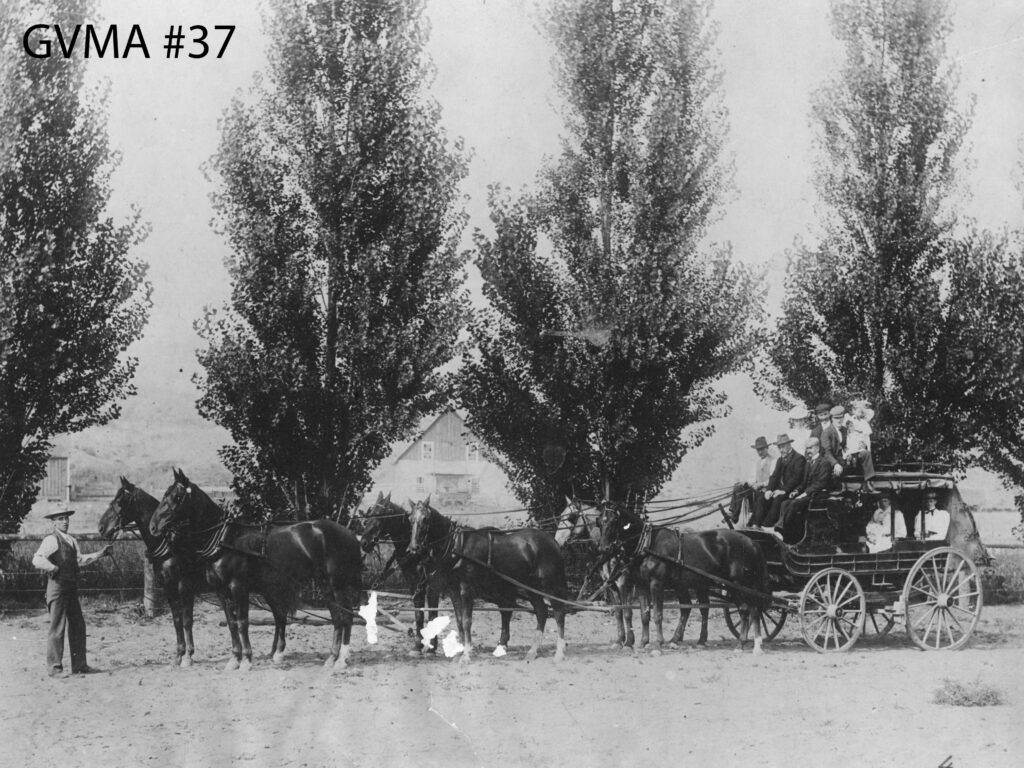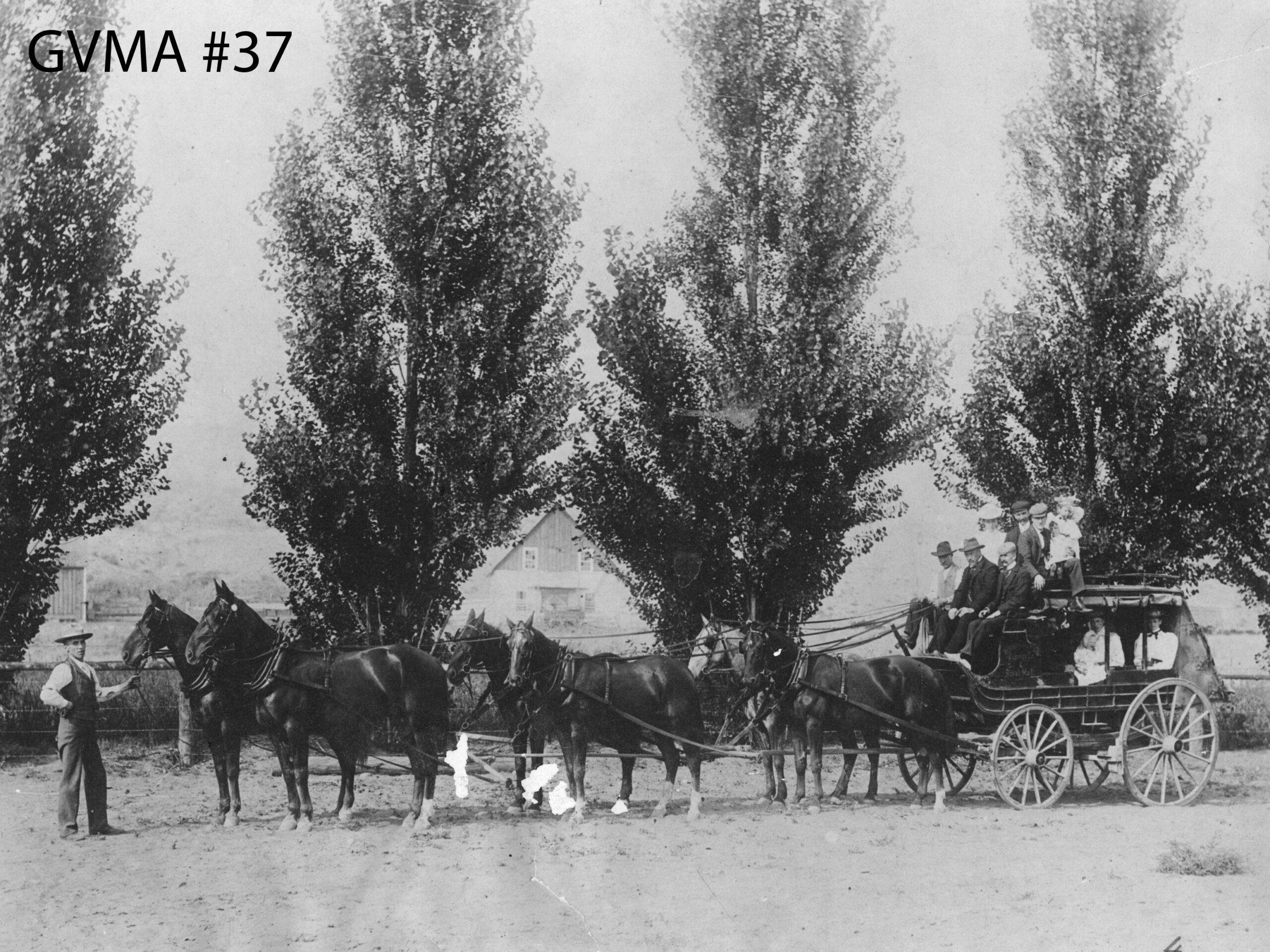The history of the BX Valley is one of ranching endeavors, agricultural traditions, and multicultural expansion.
Like all areas of the Okanagan, the BX Valley has been part of Ancestral Syilx Territory from time immemorial. However, its name originates from a gold-rush era transportation service. Established by Francis Barnard (1829-1889) in 1861, the British Columbia Express Co., affectionately known as “Barnard’s Express” or the BX, played a crucial role in ferrying mail and passengers between Yale and the Cariboo gold rush areas.
In 1864, Barnard expanded his service to include a stagecoach line that could accommodate up to 14 passengers. These coaches, each drawn by four horses, were heavy enough to require team changes every 20 kilometers. Many of these horses were bred on Barnard’s property in Vernon, known as the BX Ranch.
Spanning 6,300 acres, the BX Ranch later came under the ownership of Alexander Macdonell, who was instrumental in starting the stagecoach run from Cache Creek to Priest’s Valley in 1881. The adjacent lands around Swan Lake were primarily owned by Cornelius O’Keefe and Thomas Greenhow until 1907, when the Land and Agricultural Company of Canada, a Belgian syndicate, acquired a significant portion with the intention of parceling it out to settlers.
This initiative proved successful, as settlers from Belgium began arriving in 1910, establishing orchards and diversifying the agricultural landscape. The expansion of the Gray Canal into the BX Valley that same year facilitated this agricultural transformation, attracting interest from syndicates in Scotland and France as well. As the real estate market flourished, the BX Ranch was subdivided into smaller parcels that changed ownership over the years.
Although the Valley has witnessed many changes, its early history is still reflected in several of the area’s street names. L & A Road, for instance, is named after the Land and Agricultural Company, and Dedecker Road honors Ludovic de Decker, a prominent figure in the Belgian Syndicate and an early fruit farmer in the area. Cools Pond is a nod to Joseph Cools, a Belgian pioneer who arrived in the BX in 1911, while Herry Road recognizes Baron and Baroness Herry.

Gwyneth Evans, Archives Manager

